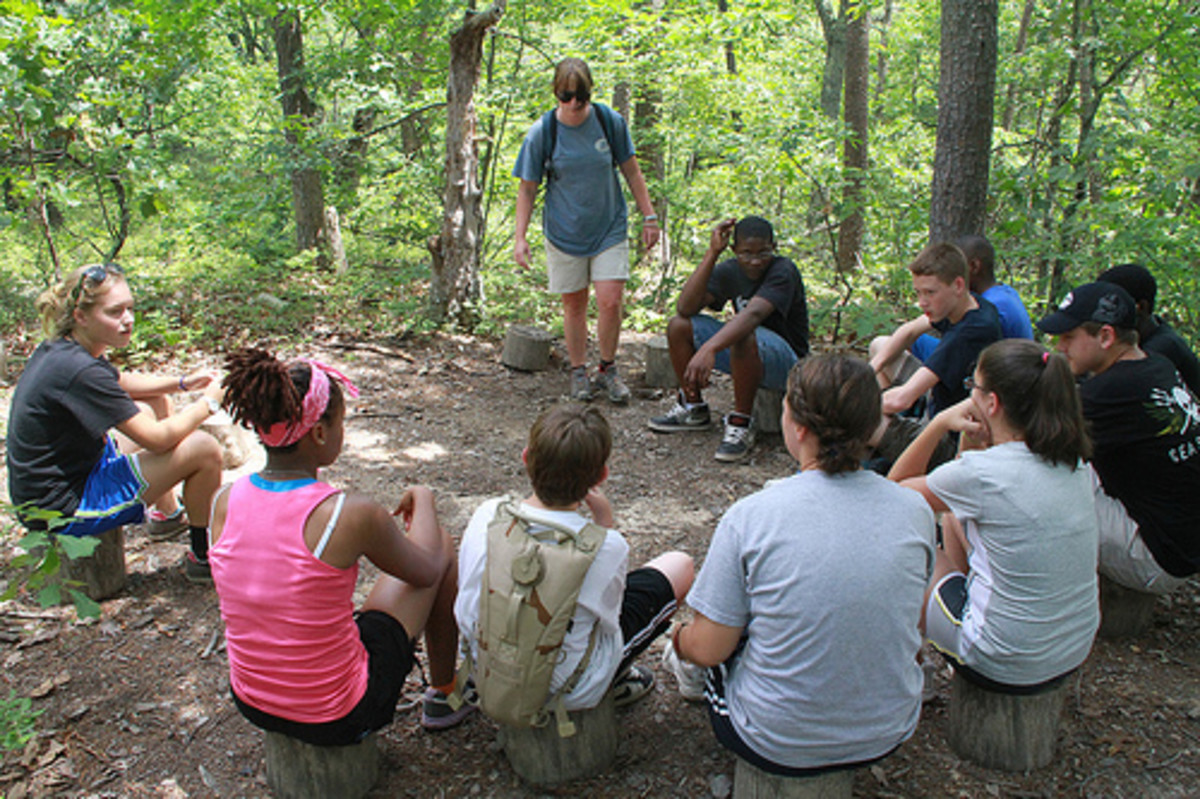The Undergraduate's Guide to College Part Two
Prepare for déjà vu. June is right around the corner and everyone knows what that means: time for graduation. There are two reactions from that single word; one is a surge of ecstasy tantamount to earning your driver’s license and the other is anxiety so severe they’re shaking like a cocaine addict going through withdrawal. For the former, good to see you have confidence, but you haven’t a clue what you’re getting into. For the latter, relax, it’s not like the principal’s last words on graduation day are going to quote The Divine Comedy: “Abandon all hope.” But it’s no surprise if a high school senior is feeling either of these feelings. You’re stepping ever closer to adulthood and this is the true test where everything you do does actually matter. Scared yet? Well you should and you shouldn’t be, because as a college graduate, I’m here to give you a list of things to do while you go to college, whether it’s the miniature and almost intimate community college or it’s the monolithic private university that makes up the entire town it’s located in. With a few tidbits of information for your usage, not only can you survive college relatively unscathed, but you’ll also have built an impressive resume for that job you want or that next level of secondary education.
In this next installment, we are going to talk about résumé building. When we hear résumé, we immediately think of that piece of paper that has all of your work experience condensed for potential employers to read. But it’s not just employers; graduate programs also ask for a résumé, which includes both work experience and your educational experience thus far. Whether it’s that dream job you’re looking for or to further your higher education, these tips should aid you in building not just your résumé but also your intellect and character.
Study, study, study. In high school, you can easily skate by those four years with no trouble and a decent, but not necessarily great grade point average. College is a whole other animal in many respects. In high school, you can get a few chances to get an assignment in late without any penalization, sans a scolding from your teacher. Your college professor is not at all likely to let that kind of stuff slide; in fact, the later your assignment is in, the lower the grade gets, even if it’s a masterpiece that could make a PhD student green with envy. The same goes for homework, even if it’s just reading. If the students don’t participate enough in the lecture after reading an article or a section of a book, there will be pop quizzes, even though they do not want to give them out; they will do so just to prove a point. And let’s not forget about online classes; just because you’re not in a classroom doesn’t mean it’s your choice to slack off on it. Everything about an online class remains the same of the regular class, sans for the fact that you can attend it in your pajamas without being mocked, at least by your fellow students. Even still, the responsibility of being in an online class increases, as you must upload your assignments and whether you do or don’t will be logged by your professor, along with your grade. The rule of thumb for studying, by the way, is for every credit you have, you must study one hour for each per week. Granted, it does include your homework, but a little extra reading or assignments couldn’t hurt. Overall, if you’re keeping up with your work at a relatively normal pace, you’re doing well and should keep it up. In fact, start this on day one. Think of it as a game of basketball; if you’re slacking in the first half, there is no amount of hustle that can redeem you in the second.
Network. You’re going to meet with a lot of people at college whether you intend to or not. It’s only natural considering that work is only one part of the entire school experience. Let’s say for example you’re an English major with a minor in creative writing. One day you’re hanging out with some friends and you run into a friend of a friend who is interested in writing a film, but is better at directing or producing. Or, if that’s not your cup of tea, let’s say you play guitar and meet some people who play similar instruments. You may not be into the whole club or fraternity thing (I’ll cover that real soon), but you still want to make connections and have some with fun with new people. And that’s only networking with a student; imagine networking with a professor. Let’s say you’re in the same major and a professor likes your work. Maybe they have a friend in the publishing business. Maybe they need someone to do some editing for them and they trust your talent and skill. It always pays to have a connection to someone with his or her Master’s or Doctorate, especially if you intend to further your education by attempting to earn your own Master’s or Doctorate. Either way, it always pays to open and talk to people; you never know what they might be able to do for you, especially if you prove to be a good person.
Join a club/fraternity/sorority. This connects to the networking rule, but it’s a little more specific. You’re going to find friends in your classes, but most, if not all of them will be the same major as you. It gets kind of boring to be a major in finance and to talk about nothing but finance all the time. Clubs offer people with similar interests to meet up, discuss, and perform activities both on and off the campus. Some go on trips to favored destinations and some even have a publication, which, if your name is in it, always looks great on a résumé. The Greek fraternities and sororities are similar, except more on the bond of brotherhood or sisterhood. It’s not like every portrayal in television and movies, where it’s parties and hazing. In fact, these student organizations are expected to maintain decent grade point averages and perform in their community, primarily volunteer and charity work. There’s even Greek organizations solely dedicated to academics on your campus, such as Sigma Alpha Lambda. Furthermore, employers may be former brothers or sisters of the organization of your choice, putting you at a slight advantage with a connection and a chance to bond. And yes, there will be a party or two, but that should only be considered as a reward for good work and not an expectation for the weekend. Or perhaps you want to make a difference more so the average organization and have a few ideas to improve campus life. In that case, you can get involved in your student government and make a name for yourself through politics. In fact, if you have political aspirations later in life, this will give you a clearer idea of what it’s all about, more so than The Daily Show and The Colbert Report (after all, there is some truth in satire). But for all of these, it’s not solely about making a name for you or feeding an ego. The important thing to remember is that these can help build your résumé for the job you want and help you get better acquainted with your fellow students and quite possibly yourself.
Never bite off more than you can chew. I bet you’re tired of hearing that, aren’t you? Well, it about sums up a key tip when it comes to managing your life in college, particularly by means of credits. If you’re going full time, the minimum is usually twelve credits, the maximum is about nineteen, and the usual amount you hear about is fifteen. Why fifteen? Because for an undergraduate, the usual amount of credits needed to graduate is one hundred and twenty. Dividing one hundred and twenty with fifteen, your answer is eight; divide that by two and you have four. Sound familiar? It should, because it’s eight semesters, two per year, and thus four years of college. However, sometimes fifteen credits are just too much to handle. The workload could be too much when juggling the rest of your life so twelve credits may not be a bad idea. If your main concern is graduating “on time” or within the once average four years but are unable to, colleges often offer classes during the summer and even during the three-week winter break. Unless, of course, twelve or even fifteen credits may be too easy for you and you know you can handle more. By all means, go for that if you’re up for the challenge. The point is when you are managing time you should take only the amount of credits you think you can handle and nothing more. Otherwise, you’ll be even more stressed out and everything else will suffer. It won’t matter how many clubs and whatnot you’re involved in; if you aren’t up to par, it will affect your future.
The long and short of it is when you’re starting your life, there are two things you need to know; one is you need to start building connections in a professional matter and two is you need to prove to that you are willing to settle down and make mature decisions. Forging those bonds between your professors and fellow students could open a lot of doors in your future, especially if you’re uncertain of it, which there is no shame in (you’d be one of out millions of students past, present, and future who uncertain about that). Grades are the perceived reflection of your efforts in your college years and future employers and administrators of higher learner will take that into account. If you want to invest in your future, invest in yourself in the present by building both your professional and academic résumé.








